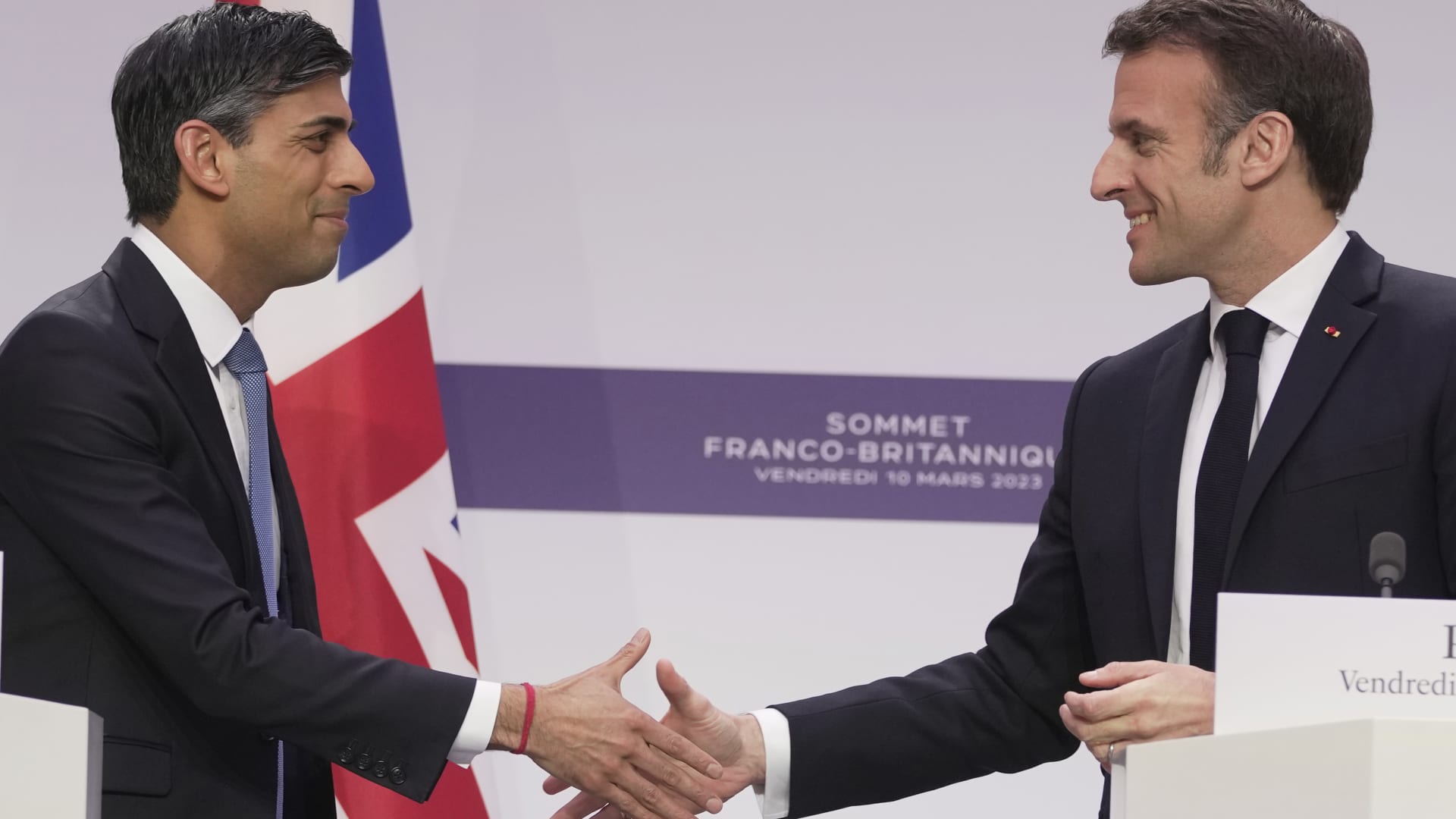U.K. Prime Minister Rishi Sunak and French President Emmanuel Macron are both vying to establish their countries as the leading capital for artificial intelligence (AI) in Europe. Macron announced 500 million euros ($562 million) in new funding at the Viva Tech conference in Paris, on top of France’s previous commitments to invest in AI. Sunak, on the other hand, pitched the U.K. as the “geographical home of global AI safety regulation.” Both countries see the strategic importance of AI and are willing to invest in training, research, and infrastructure to advance in this field.
However, there are differences in how the U.K. and France approach AI regulation. The European Union has established the AI Act, the first comprehensive set of laws focusing on AI in the West. France will be under the jurisdiction of this act, and it is expected that French regulators will take an aggressive approach to enforcing its provisions. In contrast, the U.K. has adopted a principles-based approach and issued a white paper advising industry regulators on how to enforce existing rules. The U.K.’s approach is more pro-innovation, while the EU’s AI Act could be seen as burdensome for AI investment in France.
Experts believe that both France and the U.K. have the potential to become AI leaders in Europe, but they face competition from other countries like Germany. While France has a strong talent pool and research centers, the EU AI Act may hinder startups from building AI in the EU. On the other hand, the U.K. has faced criticism for being an unattractive place for tech entrepreneurs due to political uncertainty. To challenge the dominance of U.S. AI giants, it is suggested that European countries, including France and the U.K., collaborate and invest in nurturing a robust AI ecosystem. This would require a strategic vision and a collective effort among European tech superpowers.

